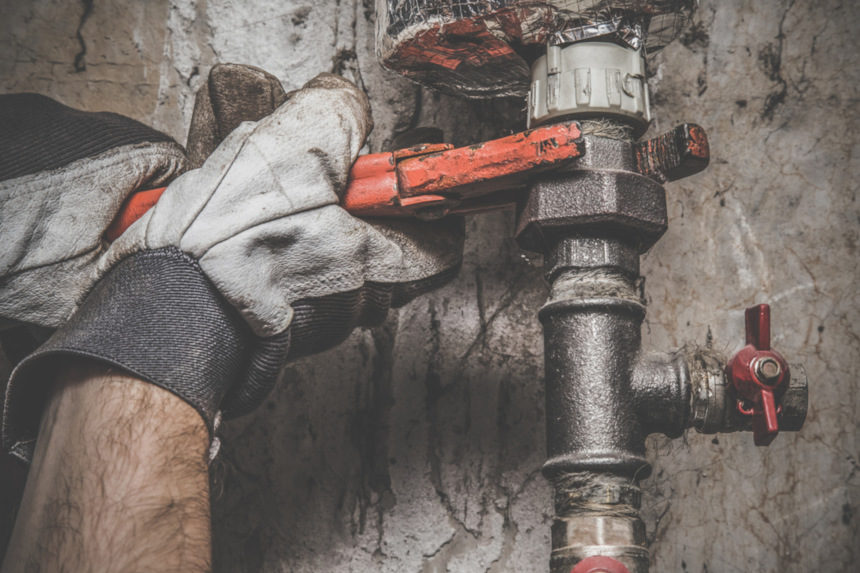Managing editor and logophile Andy Hollandbeck reveals the sometimes surprising roots of common English words and phrases. Remember: Etymology tells us where a word comes from, but not what it means today.
If you’ve got a horribly clogged drain or need to install a new toilet, you call a plumber — at least today. If you had called the original plumbers for such a job, they would have thought you daft, and probably would still have charged you for the house call.
Plumber arrived in the English language during the 1400s, a century or more before the invention of the first flush toilet. Before lead pipes began moving water into and out of buildings, plumbers were called upon to craft weights, bullets, miniatures, and a hundred other things made of lead.
The fun-to-say plumbum is the Latin word for the heavy metal lead. (This is why, on the periodic table of elements, the symbol for lead is Pb.) From plumbum came plumbarius “a worker in lead,” a meaning that held up through Old French plomier, which became, in the 15th century, the English word plumber.
Original plumbers were not experts in the flow of water and waste; they were simply people who worked in lead.
In modern Romance languages, the word for “lead” is still easily traceable to the Latin plumbum. In French, for example, it’s plomb. But English speakers have been calling the metal lead for more than a millennium, and those who worked in lead might have been known as something like lead-smiths.
But the Norman conquest of England in 1066 eventually changed that. The French-speaking ruling class considered consider English a language of lower status, so they didn’t use it. English speakers with dreams of moving up socially, then, also adopted and adapted this other language. So while a laborer working in lead might consider himself a lead-smith at home, to the wealthy upper class that hired him to work, he was a plomier — and eventually a plumber.
(The effect of the Norman conquest on the English language is far-reaching. The same shifts in language are also the reason English cows and hogs become Latinate beef andpork when they’re cooked.)
It wasn’t until the early 20th century — as indoor plumbing became the rule and not the exception in Great Britain and the United States — that plumber became more strictly associated with waterworks and sewage. Because of what we’ve learned about the toxic effects of lead, plumbers these days spend much of their time around pipes made of copper or PVC, not to mention all the porcelain and steel fixtures, further distancing the trade from its heavy metal history.
Featured image: Shutterstock.com
Become a Saturday Evening Post member and enjoy unlimited access. Subscribe now



